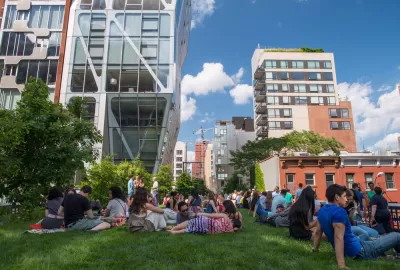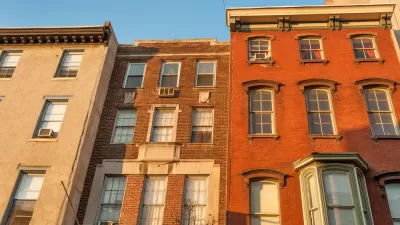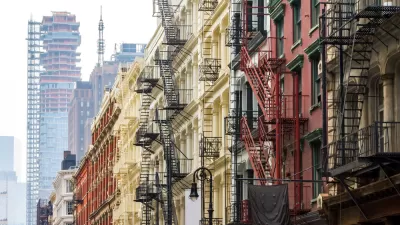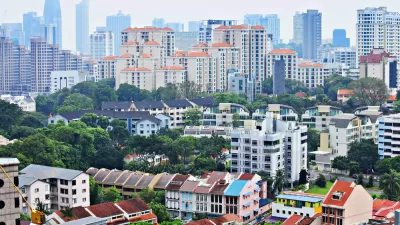The public health and economic crises caused by the coronavirus are threatening to further entrench inequality in America—between regions and within cities.

According to Clara Hendrickson and Mark Muro, "the pandemic might intensify the unevenness of America’s divergent economy, with disturbing implications."
Because the coronavirus first spread through affluent urban centers—San Francisco, Seattle, and New York City—some have wondered whether the pandemic would bring about a more geographically balanced economy by inspiring white collar workers will move in droves to less expensive parts of the country that could badly use the economic boost. "Don't bet on it," write Hendrickson and Muro. "Despite the increasing adoption of digital technology in American workplaces, economic activity has become more—not less—concentrated," according to the duo. As for why:
...while the density of large cities may be a disadvantage in fighting the spread of the coronavirus, it likely will remain an advantage in a 21st century knowledge economy, where the biggest places with the richest exchanges of ideas among highly educated workers have enjoyed the greatest economic returns.
The article also examines the pandemic's unequal consequences within cities (i.e., not just the inequality between cities and regions)—as neighborhoods in some of these cities, filled by blue collar workers keeping the economy afloat while bearing the brunt of the public health consequences of the pandemic.
FULL STORY: Will COVID-19 rebalance America’s uneven economic geography? Don’t bet on it.

Alabama: Trump Terminates Settlements for Black Communities Harmed By Raw Sewage
Trump deemed the landmark civil rights agreement “illegal DEI and environmental justice policy.”

Planetizen Federal Action Tracker
A weekly monitor of how Trump’s orders and actions are impacting planners and planning in America.

The 120 Year Old Tiny Home Villages That Sheltered San Francisco’s Earthquake Refugees
More than a century ago, San Francisco mobilized to house thousands of residents displaced by the 1906 earthquake. Could their strategy offer a model for the present?

Ken Jennings Launches Transit Web Series
The Jeopardy champ wants you to ride public transit.

BLM To Rescind Public Lands Rule
The change will downgrade conservation, once again putting federal land at risk for mining and other extractive uses.

Indy Neighborhood Group Builds Temporary Multi-Use Path
Community members, aided in part by funding from the city, repurposed a vehicle lane to create a protected bike and pedestrian path for the summer season.
Urban Design for Planners 1: Software Tools
This six-course series explores essential urban design concepts using open source software and equips planners with the tools they need to participate fully in the urban design process.
Planning for Universal Design
Learn the tools for implementing Universal Design in planning regulations.
Clanton & Associates, Inc.
Jessamine County Fiscal Court
Institute for Housing and Urban Development Studies (IHS)
City of Grandview
Harvard GSD Executive Education
Toledo-Lucas County Plan Commissions
Salt Lake City
NYU Wagner Graduate School of Public Service





























